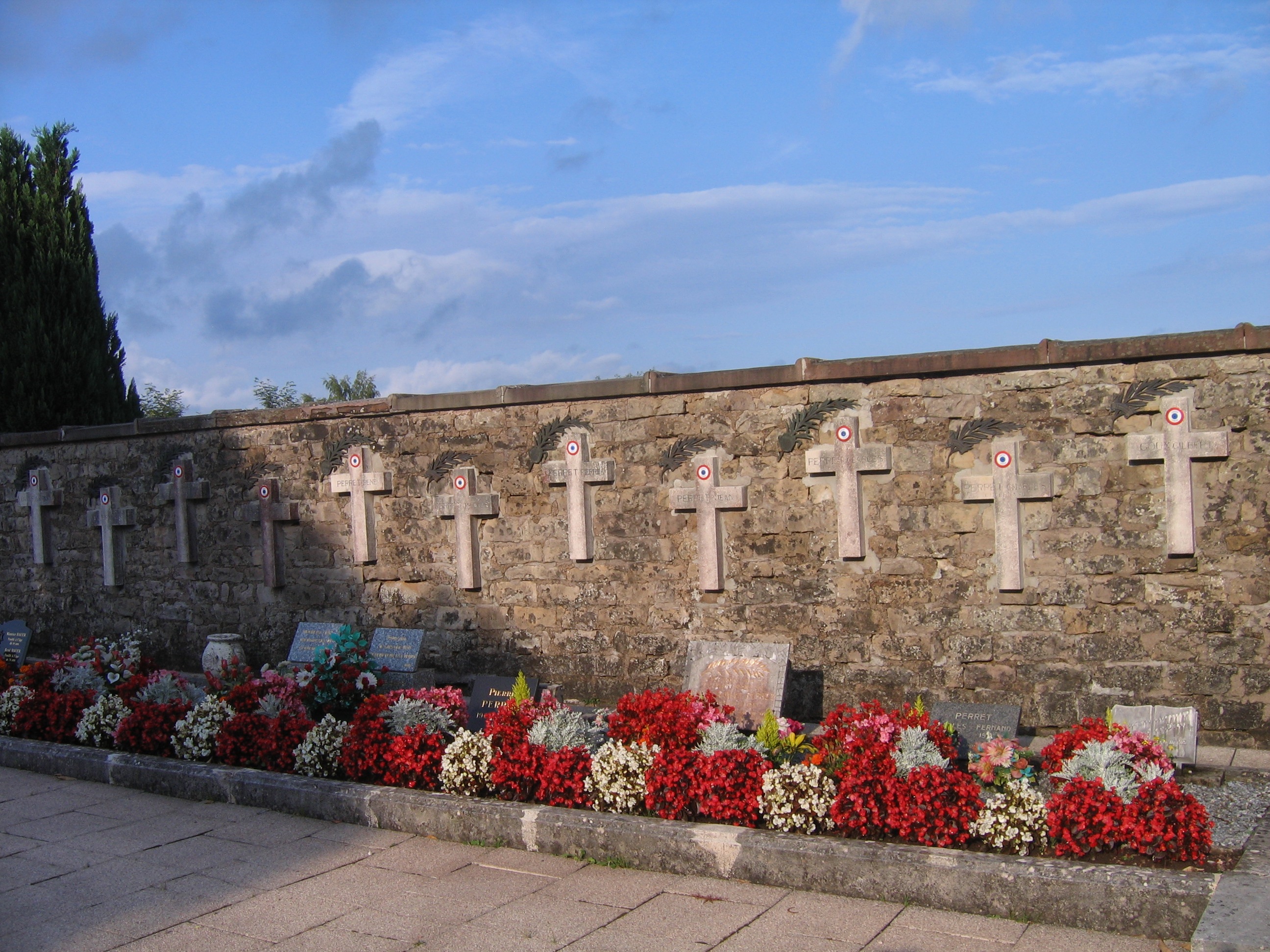Urgent
In an earlier post, I wrote about Elisabeth Matthieu, who as a young nurse, risked her life with one of her friends to save the children of Etobon. They drove a truck with a piece of fabric marked with a red cross over the bed to Etobon, through artillery fire, loaded the children and then took them to the Swiss frontier. Jules Perret writes of the urgency of the mission.
Saturday, October 28, 1944
A note from the Red Cross for the evacuation of the children to Switzerland. It’s urgent because the shelling is getting worse. Dr. Rudy Rauch, that unwashed bear, is beginning to become human. The reason? He just moved in with a pretty lady with lovely hair, a refugee at Etobon, whose husband is at the front … French. Some others are becoming more human, too, because they’re ashamed of the massacre in September. At least, they realize they may be on the losing side and are looking for sympathy that might be useful when the final destruction comes. An example: they’ve given us three thirty-liter buckets for the 100 liters of milk that we have to deliver to them. So 10 liters are left at the dairy. And the interpreter says to me, “We’ll pay for 100 liters and you keep 10 that I’ll hide. No use telling the colonel about this little irregularity.”
New orders: be ready to send the snowplow out in bad weather from here to the Grille de Champagney; put piles of sand on the sides of the roads, in case of ice.
These idiots like schnapps better than vegetables! They’ve deferred the transport of the potatoes so that the barrels can be put in place more quickly at the distillery near the school of the Vieille Verrière. Drink the schnapps, messieurs les boches, drink! The Americans will only get here more quickly.
Sunday, October 29
It’s ten o’clock. I’m stretched out on the sofa, resting my knee. There’s a nice fire. Next to me, Aline, her head bandaged, Philippe; Suzette comes and goes, Mama is making soup. You could almost forget that it’s wartime, until you hear, outside, rough voices, the pounding of boots on the pavement, the sound of the German guns being taken away, the crashing of the American arrivals … You get used to everything… “Rest, much rest,” the Franco-Boche doctor Rauch-Deville has ordered.
Philippe says, “That’s Lucie’s gun. That’s the Americans.” And he’s only six!
This afternoon, Suzette and Aline went to Chenebier, where they were told more details of the drama. They talked of the mayor, marching courageously at the head of the line, followed by René and eight others. At that moment the thugs didn’t yet know where to conduct the killings. They looked around, and finally decided on the church. Manu says he saw, in the second group, Kuntz embracing Jacques, then getting into a car while a boche pushed Jacques, very pale, into the ranks of the condemned. That’s what you get for being human and not killing prisoners …
The Germans are constantly interrogating the people of Etobon to try to find out where X is buried. They often search, here and there, in the fields. Ah! If only the infamous Colonel Vonalt had known that it was I who buried him!
Yesterday, one of Morel’s sons, from the sawmill, came home with two Germans. A shell whistled. Morel hit the ground. The Germans laughed. Not for long. The shell killed both of them.

 Katherine Douglass
Katherine Douglass